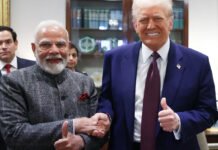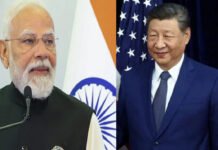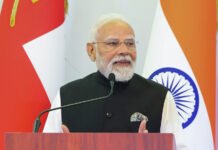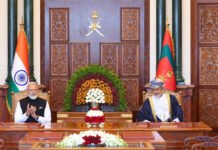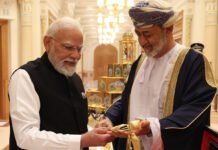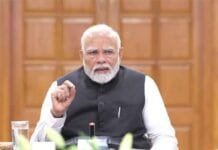In a move that has sent shockwaves through India’s media landscape, the Taliban regime has once again underscored its regressive stance on women’s participation by barring female journalists from a high-profile press conference held in New Delhi. The incident, which unfolded on October 11, 2025, has drawn sharp condemnation from activists, politicians, and the press, highlighting the ongoing clash between Afghanistan’s hardline policies and global norms of gender equality.
The Incident Unraveled
The press conference was organized to discuss bilateral relations amid India’s recent diplomatic overtures toward the Taliban-led government. However, security personnel aligned with the Taliban delegation reportedly enforced a strict no-women policy at the venue, citing “cultural sensitivities.” This exclusion left several prominent female reporters from outlets like NDTV, The Hindu, and India Today stranded outside, unable to cover what was billed as a pivotal event in Indo-Afghan ties.
Eyewitness accounts describe a tense standoff, with journalists protesting the decision on-site. “This isn’t just an insult to women in journalism—it’s a blatant rejection of the values India stands for,” said Priya Sharma, a senior correspondent who was denied entry.
Backlash and Broader Implications
The backlash was swift and vocal. Women’s rights organizations like the All India Women’s Conference labeled it “a direct assault on press freedom and gender equity.” Social media erupted with hashtags like #LetWomenReport and #TalibanInIndia, amassing over 50,000 posts within hours. Even international bodies, including the UN Women, issued statements urging India to address the “deeply concerning” incident.
This controversy comes at a sensitive time, as India navigates its re-engagement with Afghanistan post-2021. Critics argue that such events could undermine India’s global image as a champion of women’s empowerment. “Diplomatic handshakes shouldn’t come at the cost of our principles,” tweeted External Affairs Minister S. Jaishankar, hinting at potential repercussions.
What Lies Ahead?
As investigations into the security lapse continue, the incident serves as a stark reminder of the challenges in fostering ties with regimes enforcing gender apartheid. Will this prompt a reevaluation of India’s approach? For now, it has united voices across the spectrum in defense of inclusive journalism.
Stay tuned for updates on this developing story. What are your thoughts on balancing diplomacy with human rights? Share in the comments below.



